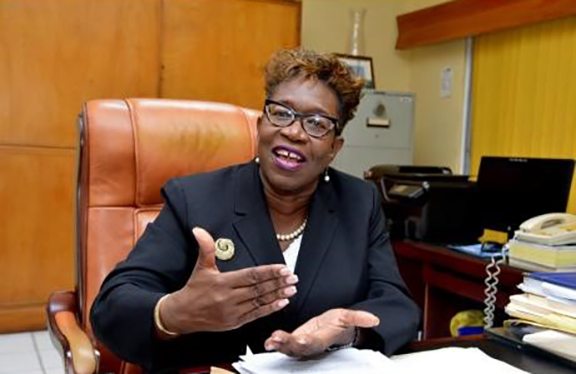(Jamaica Gleaner) Director of Public Prosecutions (DPP) Paula Llewellyn believes the country’s justice system is not yet ready for judge-alone trials and says she, therefore, does not support ending jury trials.
Chief Justice Bryan Sykes has been advocating for support to end jury trials arguing that bench trials, in which matters are handled without a jury, would save judicial time and allow for more cases to be tried while offering a better quality of justice.
But Llewellyn said, “I am not in favour in the Jamaica of today of having total judge alone trials because I have found in my experience that when you have very credibility specific cases that really impact on the community, it helps the community to understand the justice system when they are a part of the making of the verdict,” while citing as examples the murder cases of Everton ‘Beachy Stout’ McDonald and Omar Collymore, both of whom were convicted for orchestrating the murder of their wives.
In addition, she said, “With the greatest of respect to my colleagues on the bench, there are some streetwise nuances that come out in the evidence that really it’s only jurors would understand and you would find that some judges are tempted to become too legalistic in looking at the evidence.”
Llewellyn, who was speaking as a guest this morning on TVJ’s Smile Jamaica stressed that in cases where credibility is the issue, it is easier, in her opinion, for the average juror to separate the issues.
“You may not believe the police officer, but we believe the eyewitness, the judge being very legalistic and cerebral will more tend to say well it covers everything, I don’t believe anything. That is my experience. So I would prefer to see a hybrid situation,” she added.
The island’s chief prosecutor’s comments come amid a discussion on the lengthy trials and delays in the court system.
For Llewellyn, a large part of the reason is the lack of cooperation from members of the public, who are not only required to give a statement but are also required to give evidence in court during the trial.
However, she said a part of the problem is that a lot of Jamaicans are unaware of the requirements of being a good citizen.
“A lot of people really don’t know that it is important responsibility to do your jury service, a responsibility to give evidence about what you have seen. Cases cannot prove themselves,” she said.
Llewellyn, in the meantime, is calling for greater public education on how the justice system works.








